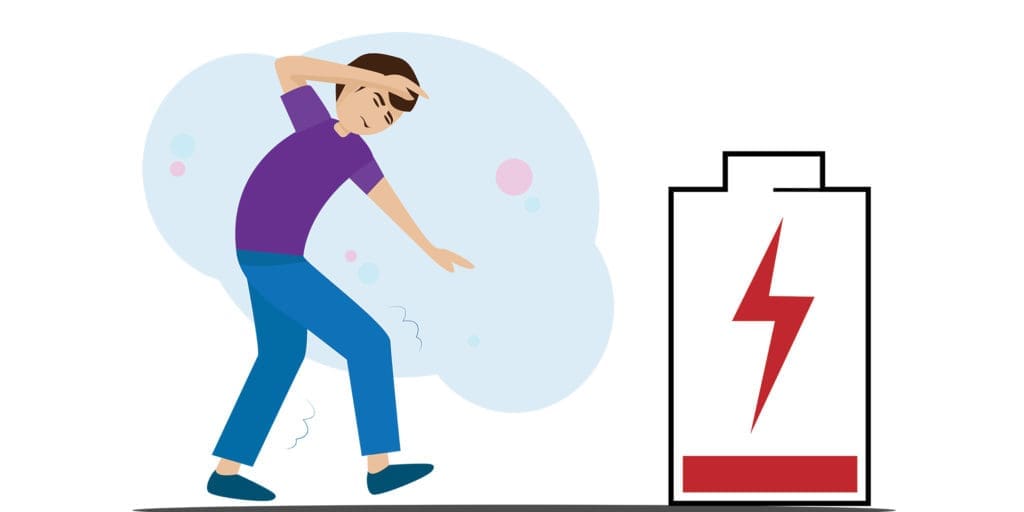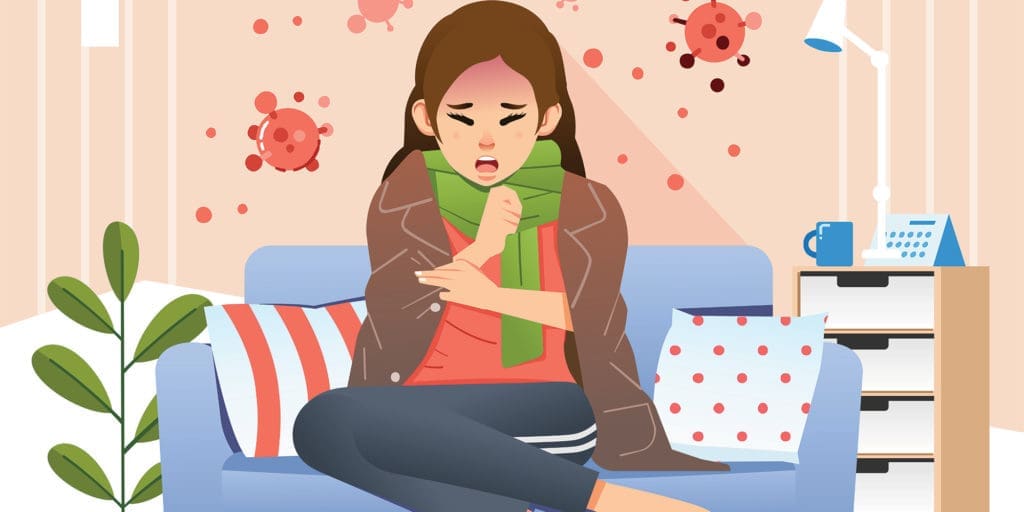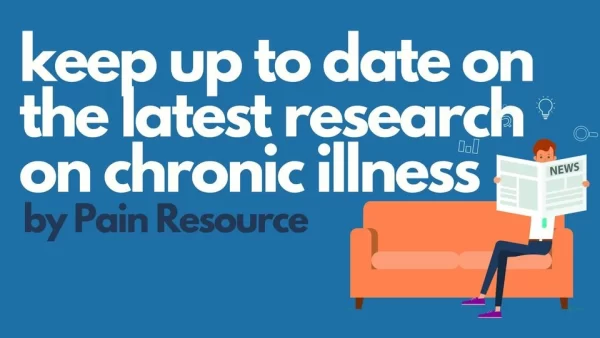Rheumatoid arthritis is an autoimmune disease that causes chronic inflammation throughout the body. It targets all of your joints, leaving you with stiffness and pain. What many people don’t know about rheumatoid arthritis (RA) is it can manifest in many ways throughout your body. The good news is if you know the early symptoms of RA, there are steps you can take to ease the symptoms.
Early warning signs of RA:
Living with the pain
Over time, rheumatoid arthritis can lead to painful physical abnormalities like joint erosion, joint deformities (ulnar drift/ulnar deviation) and permanent joint damage. In many ways, living with rheumatoid arthritis is similar to living with fibromyalgia.
 One of the hardest things for people with rheumatoid arthritis (or any form of arthritis) is living with the pain – and anxiety– that stems from unexpected flare-ups. Both conditions include symptoms like fatigue, general feelings of ache and tenderness, as well as nerve pain. Plus, flare-ups are often unpredictable. That means you may go to sleep feeling great, but wake up with:
One of the hardest things for people with rheumatoid arthritis (or any form of arthritis) is living with the pain – and anxiety– that stems from unexpected flare-ups. Both conditions include symptoms like fatigue, general feelings of ache and tenderness, as well as nerve pain. Plus, flare-ups are often unpredictable. That means you may go to sleep feeling great, but wake up with:
- swelling in joints of the hand
- joint pain or morning stiffness on a certain side of the body
- joint pain throughout your entire body
This can easily sideline your daily activities and trigger additional mental unwellness in the form of stress, anxiety and depression.
Fatigue is more than just tired

Fatigue is one of the very first symptoms of rheumatoid arthritis. It seems like an easy warning sign to identify, but it’s a sneaky symptom that people often ignore. We tend to think we’re just tired or haven’t been sleeping well. Or we think perhaps we’re coming down with a cold or suffering from allergies.
If you’re feeling more tired than normal or you have an overall feeling of ill health, it’s important to pay attention. Fatigue tends to start months or weeks before other symptoms and signs of arthritis and symptoms start becoming noticeable.
Take note of new morning stiffness
One of the most common symptoms of rheumatoid arthritis is morning stiffness. For some people, this can go unnoticed if you lead an active lifestyle. Let’s say you exercise, you have a physically demanding job or you often do repetitive tasks such as typing, writing and sewing. It may be normal to wake up feeling stiff, but that tends to be muscle stiffness that subsides after you start moving around.
Morning stiffness can be an early sign of RA if you’re experiencing:
- pain out of nowhere
- joint stiffness different from muscle pain
- pain that lasts for hours and you might notice it the most
- stiffness in your hands and wrists or ankles and feet
Mild swelling when joints feel warm
 People with rheumatoid arthritis report noticing mild swelling in their joints as one of the first warning signs that they may have also dismissed. A flare-up of this type of arthritis can trigger joint swelling throughout the body. When these joints swell, they may feel warm. This is due to inflammation.
People with rheumatoid arthritis report noticing mild swelling in their joints as one of the first warning signs that they may have also dismissed. A flare-up of this type of arthritis can trigger joint swelling throughout the body. When these joints swell, they may feel warm. This is due to inflammation.
Unfortunately, if left untreated, this mild swelling gets worse over time. It’s an unpredictable symptom; it can last for days or even a few weeks. Again, over time it can become more frequent, last longer and the pain symptoms intensify. Then you’re at an increased risk for RA complications like carpal tunnel syndrome.
Flu-like symptoms that come and go
 Another early warning sign of rheumatoid arthritis is flu-like symptoms. In addition to an overall feeling of unwellness or fatigue like you’d experience at the onset of the flu, you might notice a mild fever. This tends to occur during a flare-up.
Another early warning sign of rheumatoid arthritis is flu-like symptoms. In addition to an overall feeling of unwellness or fatigue like you’d experience at the onset of the flu, you might notice a mild fever. This tends to occur during a flare-up.
Running a low fever is what happens when your immune system responds to fight attackers such as germs or viruses. In the case of autoimmune diseases like rheumatoid arthritis, your body attacks healthy cells. This attack causes inflammation, which triggers fever.
If your fever goes above 100.4, you might have the flu or a cold or an infection. If it remains above 99 and below 100.4, that could be a symptom of RA. Talk to your doctor about these kinds of signs and symptoms.
Early Symptoms of RA: Loss of range of motion
You know your body and what’s within reach. If you notice that you’re unable to reach high shelves like you normally do or you can’t tie your shoes as easily, this can be an early warning sign of RA. Lack of motion comes on naturally as people age. But when it’s due to RA, it’s due to painful joints and possible nerve pain.
A loss of range of motion can lead to unhealthy habits that can make living with rheumatoid arthritis worse. For example, if you stop exercising due to pain in small joints, that can cause you to gain weight. In turn, that can make RA symptoms worse.
Also, the less you move, the worse it gets. For people living with RA, they often use physical therapy to regain strength and improve range of motion.
Early Symptoms of RA: Walking on golf balls
Even in the early stages of rheumatoid arthritis, people often report feeling as if they are walking on golf balls. This sensation is caused by swelling in the joints of the foot, particularly in the ball of the foot. That particular point bears much of your body weight.
Avoid complications down the road
Understanding early warning signs of RA can go a long way towards maintaining your health. It’s best to get a diagnosis for your rheumatoid arthritis in the early stages of the disease, so you aren’t at increased risk for dangerous and painful complications like:
- carpal tunnel syndrome
- infections of your joints
erosion of your joints - joint disfigurement
The bottom line: Self-care is key
There isn’t a cure for rheumatoid arthritis. However, there are effective treatment options people living with RA can use to slow the disease’s progression. This, of course, includes self-care opportunities. Physical therapy and certain types of medications called anti-rheumatic drugs can also help ease symptoms. Take action to support your immune system and improve your overall health as well.
What was your first early warning sign of rheumatoid arthritis?
Tell us about your journey in the comments below.
Facebook Group: The Invisible
Illness by Pain Resource
 Join our online community by
Join our online community by
clicking here.
Pain management starts and ends with health awareness and dedication. Click here to read more.

 Join our online community by
Join our online community by
Thank you for the comments and questions.
It would be best to direct all questions you have about arthritis towards your physician.
Everyone will have different symptoms so there is no general answer.
Can the lack of strength after waking up be a sign of arthritis?
For how long do arthritis symptoms develop?